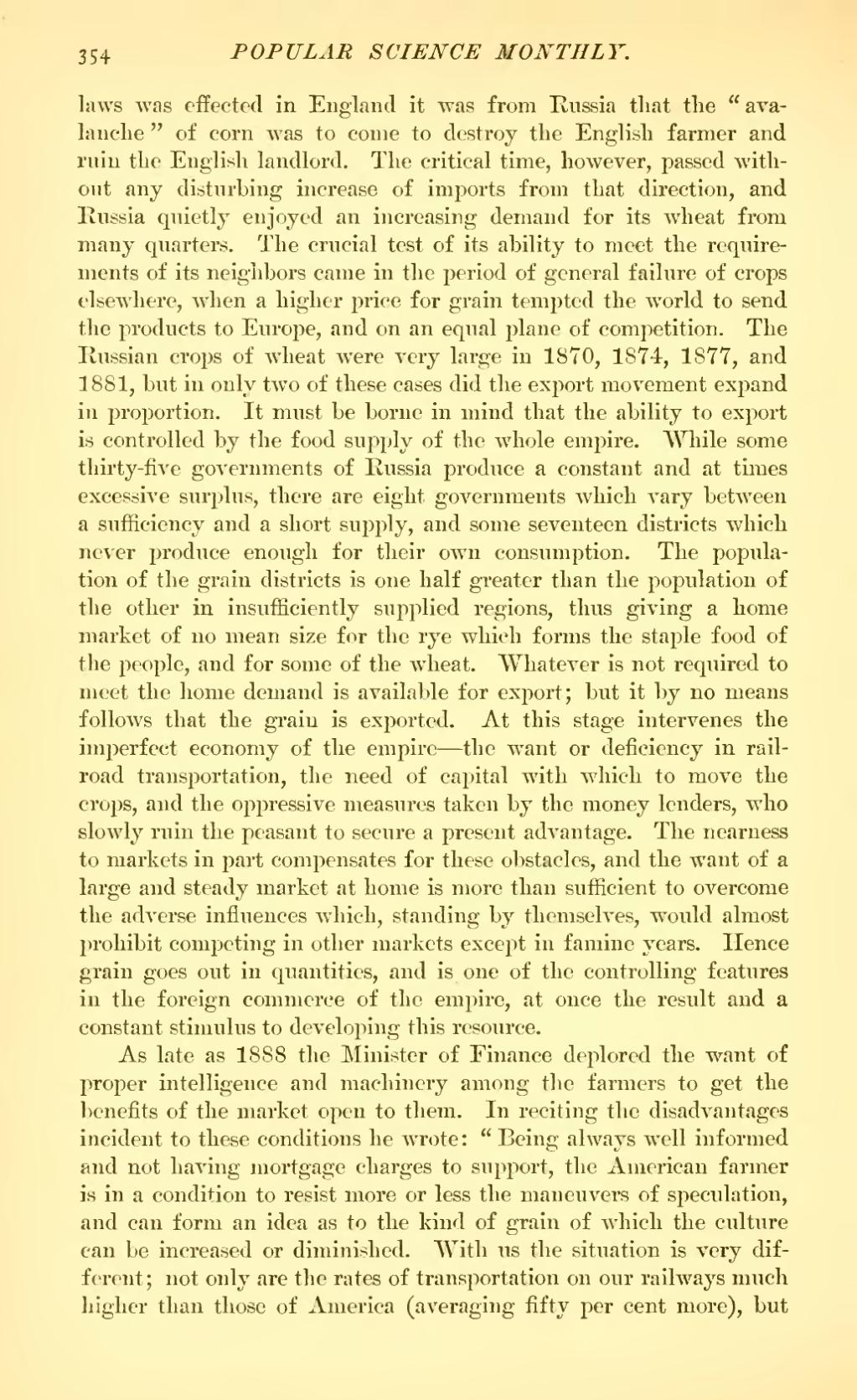laws was effected in England it was from Russia that the "avalanche" of corn was to come to destroy the English farmer and ruin the English landlord. The critical time, however, passed without any disturbing increase of imports from that direction, and Russia quietly enjoyed an increasing demand for its wheat from many quarters. The crucial test of its ability to meet the requirements of its neighbors came in the period of general failure of crops elsewhere, when a higher price for grain tempted the world to send the products to Europe, and on an equal plane of competition. The Russian crops of wheat were very large in 1870, 1874, 1877, and 1881, but in only two of these cases did the export movement expand in proportion. It must be borne in mind that the ability to export is controlled by the food supply of the whole empire. While some thirty-five governments of Russia produce a constant and at times excessive surplus, there are eight governments which vary between a sufficiency and a short supply, and some seventeen districts which never produce enough for their own consumption. The population of the grain districts is one half greater than the population of the other in insufficiently supplied regions, thus giving a home market of no mean size for the rye which forms the staple food of the people, and for some of the wheat. Whatever is not required to meet the home demand is available for export; but it by no means follows that the grain is exported. At this stage intervenes the imperfect economy of the empire—the want or deficiency in railroad transportation, the need of capital with which to move the crops, and the oppressive measures taken by the money lenders, who slowly ruin the peasant to secure a present advantage. The nearness to markets in part compensates for these obstacles, and the want of a large and steady market at home is more than sufficient to overcome the adverse influences which, standing by themselves, would almost prohibit competing in other markets except in famine years. Hence grain goes out in quantities, and is one of the controlling features in the foreign commerce of the empire, at once the result and a constant stimulus to developing this resource.
As late as 1888 the Minister of Finance deplored the want of proper intelligence and machinery among the farmers to get the benefits of the market open to them. In reciting the disadvantages incident to these conditions he wrote: "Being always well informed and not having mortgage charges to support, the American farmer is in a condition to resist more or less the maneuvers of speculation, and can form an idea as to the kind of grain of which the culture can be increased or diminished. With us the situation is very different; not only are the rates of transportation on our railways much higher than those of America (averaging fifty per cent more), but
